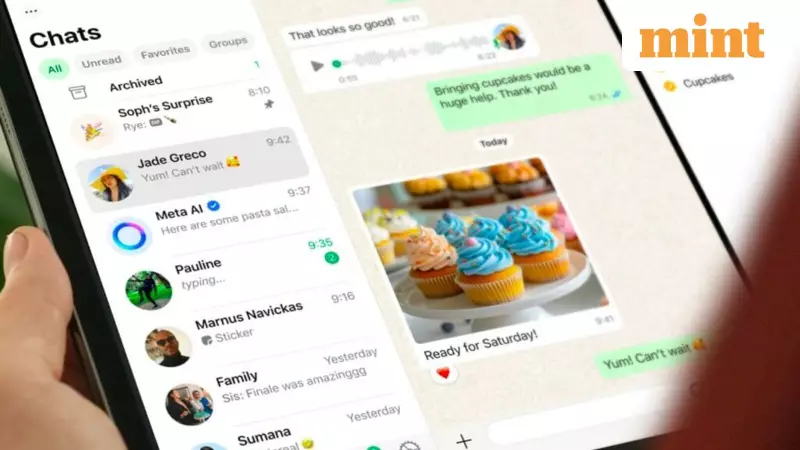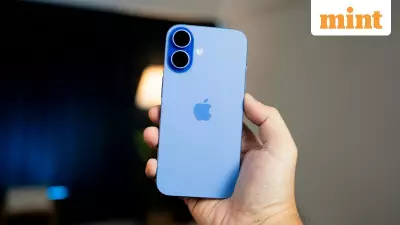
Global messaging giant WhatsApp is making significant inroads into Apple's traditionally dominant US messaging ecosystem, driven by its superior group chat capabilities and recent expansion to iPad and Apple Watch.
The American WhatsApp Awakening
WhatsApp, owned by Meta Platforms, is experiencing unprecedented growth in the United States, particularly among iPhone users who have long preferred Apple's native iMessage service. Recent data reveals that monthly active iOS users of WhatsApp increased by 39% last quarter compared to the same period in 2020, according to market intelligence firm Sensor Tower.
The shift became evident at real-world events like weddings, where American iPhone users are increasingly turning to WhatsApp for coordination. Sophie Benjamin, a recent bride, utilized WhatsApp's Communities feature to manage her wedding guests, creating both group chats and announcements-only channels. "It was the one service everyone was on," Benjamin noted, highlighting the app's cross-platform accessibility that accommodates both iPhone's blue bubbles and Android's green bubbles.
Why Americans Are Switching to WhatsApp
The primary driver behind WhatsApp's US growth appears to be its superior handling of large group conversations. While Apple's iMessage limits groups to 32 participants, WhatsApp supports up to 1,024 members in a single chat, making it ideal for community organizing, work collaborations, and large social gatherings.
Ben Bajarin, CEO of market-research firm Creative Strategies, perfectly captures the emerging trend: "My inner circle is in iMessage, and my outer circle is in WhatsApp." Bajarin participates in approximately a dozen WhatsApp groups spanning sports teams, local communities, and professional networks.
Armond Esmaili, an internal medicine doctor and recent groom, appreciates that WhatsApp "feels less intrusive than text messages" despite being an iPhone user. He also uses the platform for professional peer groups where doctors discuss challenging patient cases without sharing identifying details.
Technical Expansion and Competitive Landscape
WhatsApp's strategic expansion to iPad and Apple Watch this year has further strengthened its position. The iPad version supports video and audio calls, screen sharing, and multitasking with split view, while the Apple Watch app allows users to read full messages and send voice notes, though it still requires iPhone connectivity for cellular functionality.
Meanwhile, Apple has responded by incorporating WhatsApp-like features into iMessage, including polls and group-chat typing indicators in its latest iOS update. The company also added Rich Communication Services (RCS) support to improve cross-platform messaging, though it still lacks full encryption and in-line replies that WhatsApp provides.
Zafir Khan, head of consumer product at WhatsApp, attributes the app's US growth to multiple factors beyond group messaging, including optimization for low-connectivity areas and features like sticker makers and disappearing messages.
The Road Ahead for Messaging Dominance
Despite WhatsApp's impressive growth, iMessage's network effects remain strong in the American market. Anirudh Kamath, an AI startup co-founder in San Francisco, acknowledges that while WhatsApp is "so much more functional than iMessage," particularly for searching conversations, he believes "the network effects of iMessage and FaceTime are too strong to escape anytime soon."
WhatsApp reached 100 million monthly users in the US last year, with over half using iPhones, according to Meta CEO Mark Zuckerberg. The app saw peak new downloads—exceeding two million—from Apple's App Store in both May and July this year, indicating sustained momentum.
As the messaging wars intensify, WhatsApp's challenge will be balancing its privacy-focused reputation with Meta's commercial initiatives, including advertising in separate tabs and prominent placement for Meta AI. For now, American users are embracing the platform that finally makes large-group communication seamless across all devices.





